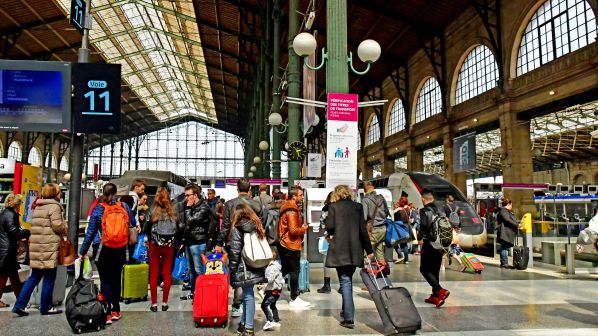THE CEOs of European state-owned passenger operators have reaffirmed their commitment to improving international ticketing, promising passengers that by 2025 they will be able to enjoy “a seamless user experience” when planning journeys, purchasing tickets and using cross-border rail services.
This commitment has taken the form of the resolution adopted at the annual high-level passenger meeting organised by the Community of European Railway and Infrastructure Companies (CER) and the International Union of Railways (UIC), held earlier this month in Prague.
According to CER, improvements to ticketing are need if the railways are to help meet the targets for reducing carbon emissions and modal shift contained in the EU’s European Green Deal.
In their resolution, the participants in the Prague meeting say that smart digital ticketing and information solutions will facilitate customer access to the European railway system, and will increase the attractiveness of rail.
They commit themselves to further improving the passenger experience when planning international journeys and booking tickets, and to working with CER, UIC and the International Rail Transport Committee (CIT) to implementing the ticketing roadmap published by CER in October 2021.
The roadmap aims to provide by 2025 a seamless user experience by enabling access to simple, reliable and comprehensive online and real time information on timetables and the tickets available for all domestic and international rail journeys, including urban and regional services.
This will be achieved by the implementation of “harmonised, sector-driven technical solutions,” the resolution says, and will enable passengers to buy tickets for international journeys from six months to up to one year in advance from multiple carriers in one ticket for seamless travel.
The resolution also says that tickets issued by different operators and ticket vendors will be easily accepted throughout Europe.
Passengers experiencing delay or disruption will be able to access digital services providing assistance on the best way to reach their destination, and guidance on their rights.
This will build on the CIT Agreement on Journey Continuation, which has been adopted by 15 operators to ensure passengers reach their destination despite disruption.
The technical solutions to be implemented are based on the Open Sales and Distribution Model (OSDM) that has been developed to simplify international ticketing and distribution, harmonise the exchange of fares and timetable information and allow “full ticket digitalisation.”
The OSDM is the Europe-wide industry standard for ticket sales, reservations and revenue allocation, and is jointly managed by UIC, operators, ticket vendors and associations forming part of the European Travel Agents’ and Tour Operators’ Associations (ECTAA)
The resolution asks the European Commission to take all steps necessary to support the smooth implementation of this and other solutions by incorporating OSDM in the Technical Specification for Interoperability covering Telematics Applications for Passengers (TAP-TSI).
The operators say that publication of the TAP-TSI cannot reasonably be delayed beyond 2022 without putting at risk ongoing investment by the sector to fulfil its commitment to deploy ticketing elements by 2025.
“This would help in securing and speeding up the implementation of OSDM within the sector, to which CER, UIC, CIT and their members have committed to and are already working hard on,” the resolution says.
“The European railway system is a fundamental pillar to achieve EU climate targets,” says CER executive director, Mr Alberto Mazzola. “One of the things we also need to focus on is ticketing, and CER is ready to deliver. We invite all relevant stakeholders to support and participate in the CER ticketing roadmap in order to help us realise the EU’s Green Deal objective together.”

